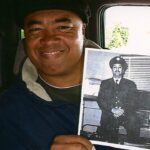When you come from the kind of background one Ursula Burns has, there is only one aim in life – to be the best at anything and everything you do.
Ursula Burns is the first black woman CEO in the Fortune 500, a feat she did not fully understand until she got the attention from the likes of President Bill Clinton, NBA Hall of Famer Magic Johnson and Al Sharpton, to name a few. It was when the calls from these individuals came in that she said, “Then I said, ‘Holy sh-t, this is a big deal.”
Ursula is an American businesswoman, best known for being the CEO of Xerox from 2009 to 2016 and was Xerox’s chairman from 2010 to 2016. In 2014, Forbes rated her the 22nd most powerful woman in the world.
Speaking about her life growing up, Ursula says, “I grew up in a very poor environment. My mother was an immigrant from Panama. She came here with my father, but he left when I was two. She raised all three of us, basically on welfare and bartering skills. She cleaned offices for food and did childcare work — the government had a program where poorer families would take care of middle-class kids after school.”
Burns obtained a bachelor of science degree in mechanical engineering from Brooklyn Polytechnic Institute (now New York University Tandon School of Engineering) in 1980 and a master of science in mechanical engineering from Columbia University a year later. She grew up as a middle child and says she has the typical traits of a middle child -Independent, a loner, ver compliant and barely got into trouble at school. Growing up her mom made things very clear, “
My mother was clear: She had three assets, and those were her kids. One of her famous sayings was, “The world doesn’t happen to you, you have to happen to the world. What she meant is: You can sit back and wait for things to come, or you can literally go out and make things happen. This was in the 1960s when Blacks were still being fundamentally marginalized. She literally believed that we would be something.”
Her mother’s statement on ‘Where you are is not who you are’ constantly resonated with Ursula and hence she expected nothing but success from herself growing up. Her determination had her in rooms where she was the minority at a very early age.
“I was always the minority in the room. I chose a set of careers that were male-dominated, and if [my classmates or coworkers] were Black, they were all male. I have lived my whole life, except for high school, where there were very few people like me.” According to Ursula her natural place is ‘being the only person or amongst the minority in the room.’
Burns describes her journey to becoming CEO despite being a minority as exciting. To her, being in the minority was actually an advantage unlike what most people thought. “First, I worked really hard. I chose a career that was perfect for me. It was very analytical, and you could manage it being a loner because you worked on problems by yourself.
Second, if there was a problem that needed to be solved and they needed someone, I always said yes. I didn’t negotiate a damn thing upfront. It was just about, “What do you need done? Third, I was a minority. Being the minority when you have a little bit of confidence — and you know what you’re talking about — turned out to be an advantage more than a disadvantage, at least in the early parts of my career.
If I raised my hand in any meeting, almost surely, it was called on. If I had an idea, people would listen. They may not always comprehend it or agree, but being the minority turned out — at least, at Xerox — to be an advantage. I think it still can be for many women, Black people, people of colour. You’re so different that, at least in open spaces, they can’t ignore you.”
When Ursula Burns started as CEO of Xerox, she admits she did not know nearly half of what she needed to know to run the company. She immediately realised she needed a team of competent people around her. She had no problem asking for help because she wanted feedback and was ready to give feedback also. Ursula needed to succeed anyway she needed to.
“I am a firm believer in not being too nice. [Many] companies have this culture of “everybody be nice — but when we get to the private room, we talk about how we really feel.” [We did] it because we didn’t want to hurt people’s feelings, which I do understand. But it didn’t allow them to learn. If it’s good, tell me that it’s good. But if it’s not good, please tell me so I can fix it.”
Ursula Burns is currently chairwoman of the international telecom company Veon and a founding member of the CEO-spearheaded nonprofit Change the Equation, focused on STEM education and also serves on the boards of ExxonMobil, Scratch, Uber and American Express. She was married to Lloyd Bean until his death in 2019, with whom she has a daughter.

















